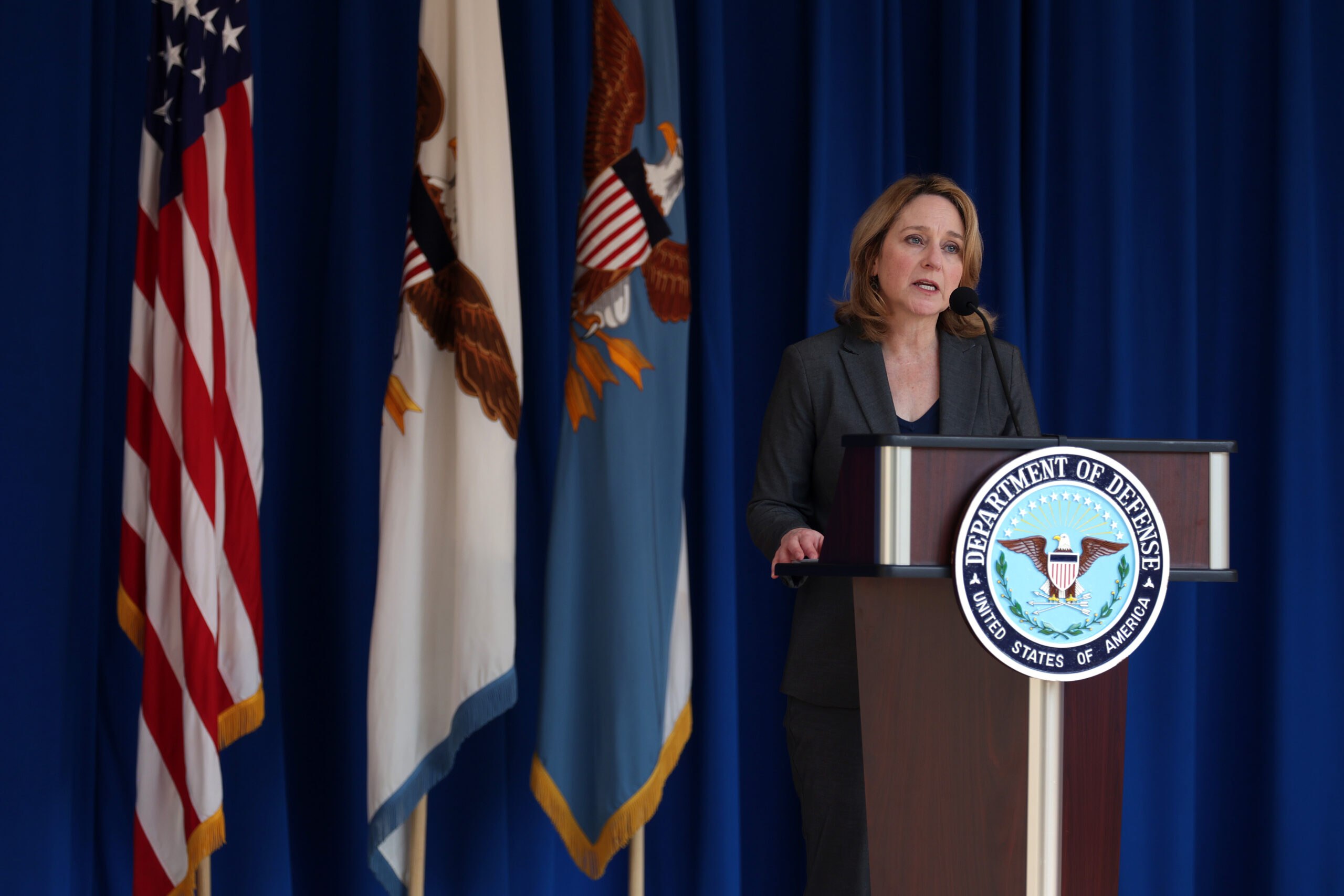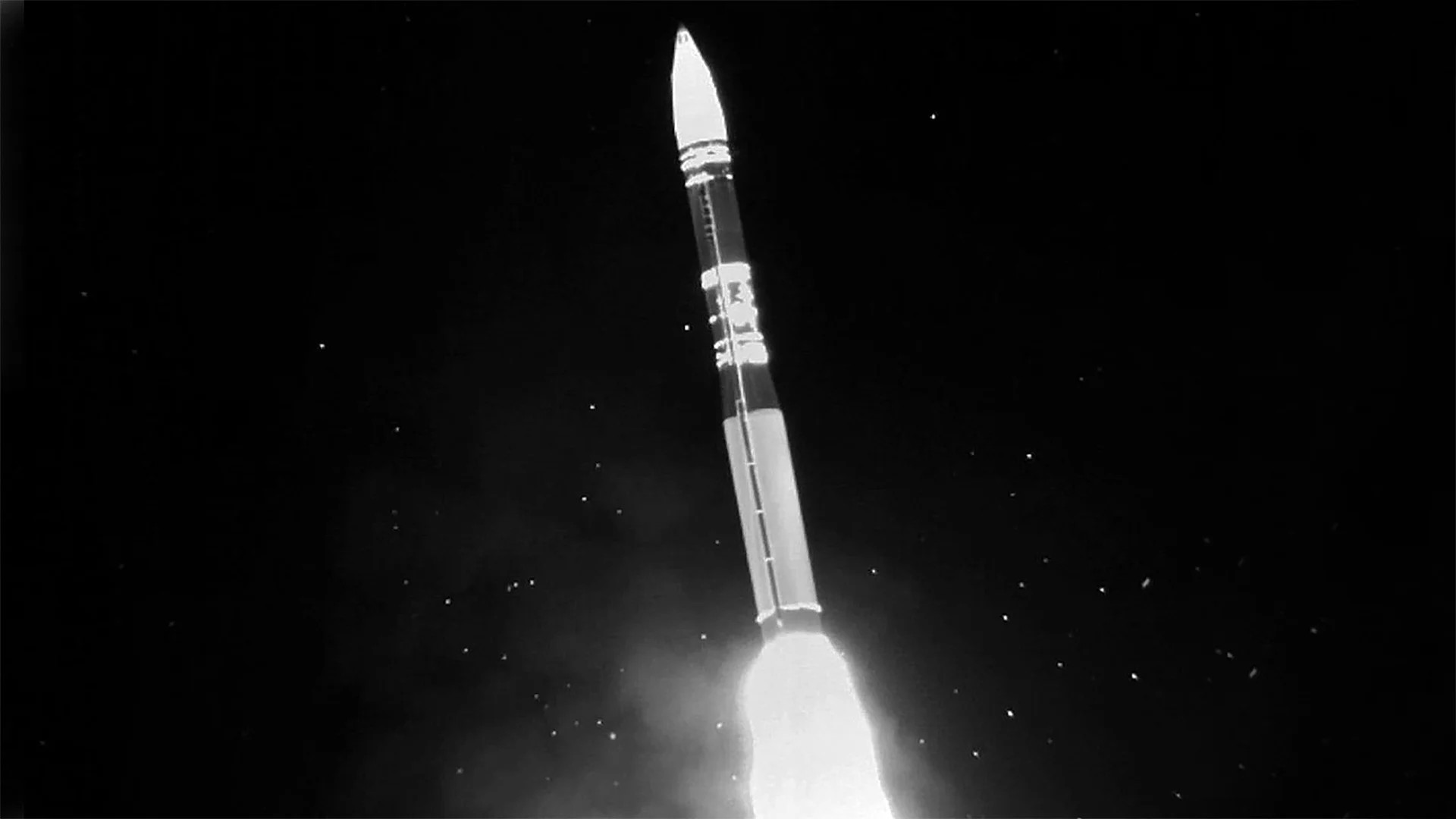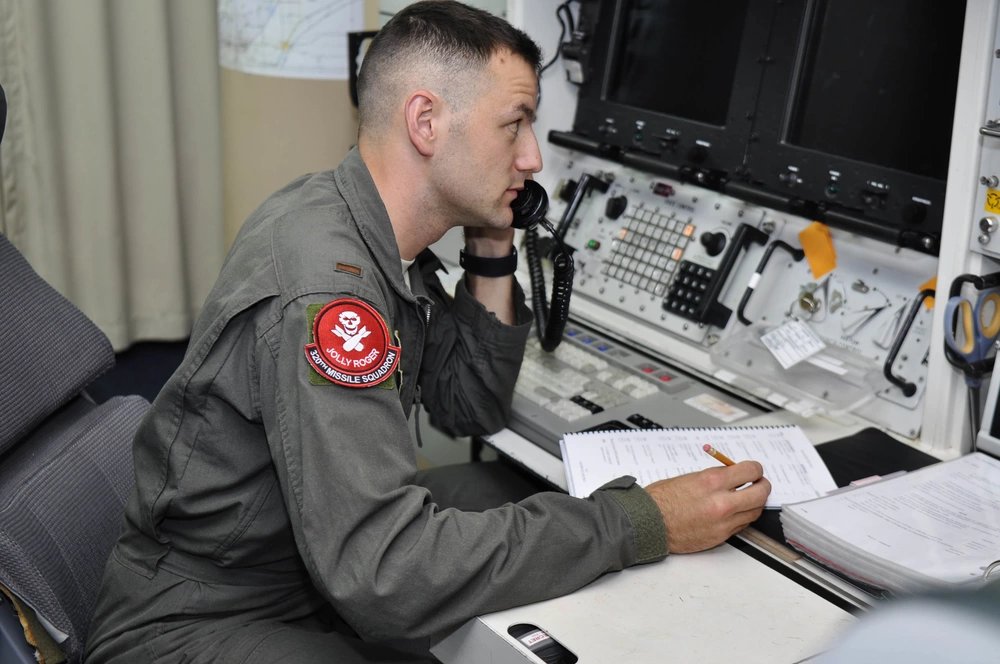For four days, President Joe Biden had no idea that Defense Secretary Lloyd Austin was hospitalized and that many of his authorities for action had been delegated to Deputy Defense Secretary Kathleen Hicks. However, had the unthinkable happened and Biden needed to launch a nuclear attack during that time, would Austin’s unprecedented stealth absence have made a difference? This was certainly a question being asked by many as the bizarre situation began spilling into the public domain.
The answer is no. Let us explain.
Secrecy Saga
Nearly two-and-a-half weeks after Austin first went in for an elected medical procedure on Dec. 22, the Pentagon on Tuesday finally acknowledged why. He underwent general anesthesia at Walter Reed National Military Medical Center for a “minimally invasive procedure called a prostatectomy to treat and cure prostate cancer,” the Pentagon’s top spokesman told reporters, including from The War Zone. Ensuing complications arose, said Air Force Maj. Gen. Pat Ryder, requiring Austin to be admitted to the hospital on Jan. 1. He was transferred to intensive care the next day.
That’s when Austin transferred to Hicks, who was vacationing in Puerto Rico at the time, “strategic-level, operational authorities related to the department’s business,” said Ryder. “If there are certain things that require secure communications, whether it’s command and control of forces related to certain operations around the world, those authorities would then be transferred to the deputy secretary so she is able to make decisions on behalf of the secretary if he’s not able to access those communications.”
What is not clear at the time is if Hicks was fully aware of this transfer and its implications, as she did not learn about Austin being hospitalized until days later.

Still, Hicks like Biden, the National Security Council and other top military leaders, was unaware until Jan. 4 that Austin was hospitalized. Congressional notifications went out Friday and the American public would not find out until Friday afternoon, after the Pentagon sent out a brief press release at 5:03 p.m.
Austin’s Chief of Staff, Kelly Magsamen was out with the flu last Tuesday, Ryder said during a press briefing yesterday, and did not notify anyone outside of Austin’s team about his hospitalization until Thursday.
Austin, who resumed his duties Friday, remains hospitalized, with no date yet set for his release.
Magsamen on Monday authorized a review “to identify the relevant facts and circumstances during this period and evaluate the processes and procedures through which the Deputy Secretary of Defense was notified that she should to carry out the functions and duties of the Secretary of Defense.”
Fallout
The entire episode has sparked some very valid criticisms about the transparency of Austin, his staff and subordinates, their duty to inform and the implications for national security. In particular, however, politicians like U.S. Sen. Tom Cotton (R-Ark) and U.S. Rep Don Bacon (R-Neb) blasted Austin’s absence over concerns about how it would affect the president’s ability to use a nuclear weapon, if needed.
“Secretary Austin must address promptly the troubling report that the Department of Defense didn’t immediately notify President Biden or the National Security Council that he was hospitalized and unable to perform his duties,” said Cotton. “The secretary of defense is the key link in the chain of command between the president and the uniformed military, including the nuclear chain of command, when the weightiest of decisions must be made in minutes. If this report is true, there must be consequences for this shocking breakdown.”

Bacon offered similar concerns on Twitter.
“The SECDEF was in the ICU and his undersecretary was on vacation, and the White House did not know for 3 days,” Bacon tweeted. “Nuclear Command and Control is the #1 defense priority, and it failed here. We want transparency and accountability on this.”
While the president having any confusion as to where their secretary of defense is during a nuclear crisis when seconds matter isn’t a good thing, those concerns, however, are technically unwarranted. This is according to one of the foremost experts on nuclear weapons doctrine.
“It would also be worth exploring why members of Congress with oversight responsibility on nuclear policy matters are so ignorant of the nuclear chain of command,” Stephen Schwartz, Nonresident Senior Fellow, Bulletin of the Atomic Scientists, told The War Zone. “I’m thinking of the concern and outrage expressed by Rep. Don Bacon and Sen. Tom Cotton, both of whom clearly believe the secretary of defense is essential to authorizing the use of nuclear weapons.”
The politicians “seem much more interested in using this incident—which is admittedly very problematic—as ammunition for political shots even when the facts demonstrate their supposed outrage over undermining nuclear deterrence is totally unfounded,” Schwartz said.
How It Works
The U.S. does not have a “no first use” policy when it comes to nuclear weapons. That being said, should the U.S. come under nuclear attack, the time to respond would be very limited. Ballistic missiles fly so fast that the Commander In Chief could have 30 minutes or less to make a decision after the U.S. military detected a launch and determined whether or not it was threatening.
As Schwartz said, however: “Contrary to popular belief, the secretary of defense is not in the nuclear chain of command and plays no formal role in authorizing the use of nuclear weapons. Former Secretary of Defense William Perry has spoken and written about this numerous times over the last several years. The secretary of defense may advise the president, but he has no ability to approve (or disapprove) of the use of nuclear weapons.”
Schwartz added: “In the military itself, the chairman of the Joint Chiefs of Staff and the commander of US Strategic Command also play a purely advisory role. Although the STRATCOM commander is in the chain of command, his approval is not required and he has no authority to countermand a presidential nuclear use order. He can disagree or object, but he cannot legally prevent the president from using nuclear weapons.”

“The president alone retains sole authority over when, where, and how to use the U.S. nuclear arsenal, and the president is the only person (apart from the Vice president) to carry a ‘Biscuit’ — formally a Sealed Authenticator System code card generated by the National Security Agency — containing unique codes identifying him as the president if and when he calls the National Military Command Center to authorize a nuclear strike.”
Schwartz continued: “Note that these are not the ‘launch codes,’ which are retained and controlled by the military and only transmitted to officers in charge of launching or dropping nuclear weapons after the president has confirmed his identity and authorized a specific nuclear attack from the many, many, many pre-planned options available to him.”
“In the 1950s and 1960s, presidents Eisenhower, Kennedy, and Johnson pre-delegated the authority to use nuclear weapons to selected senior military commanders under very specific defensive scenarios to ensure a surprise Soviet nuclear attack did not render the United States unable to retaliate if the president and the military were unable to communicate or the president was otherwise unable to respond. These highly-classified arrangements continued through the Reagan administration and were only rolled backed in the mid-1990s by the Clinton administration. In any event, the US military only has this authority if the president grants it. The military cannot legally use nuclear weapons on its own.”

The bottom line, said Schwartz, is that an “incapacitated secretary of defense — assuming no one was fulfilling his responsibilities on an acting basis — would deprive a president of advice and counsel on the most consequential decision any president would have to make, but it would not in any way impede the use of nuclear weapons.”
During his press briefing, Ryder told The War Zone that someone was available to provide that advice, but he did not specify who. It is unclear how much Hicks knew about her status in the nuclear advisory role. In an email to The War Zone, White House National Security Council spokesman John Kirby said that while the White House did not find out about Austin’s hospitalization until Thursday, “at no time was appropriate command and control compromised.”
So while there are plenty of reasons why this episode raises alarms, Joe Biden’s ability to launch a nuclear attack during Austin’s hospitalization is not one of them.
Update: Jan. 10 11:50 AM Eastern –
At Stephen Schwartz’ request, his comments about presidential pre-delegation of authorities have been updated to better reflect when they were rolled back.
Contact the author: howard@thewarzone.com
